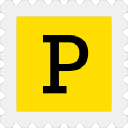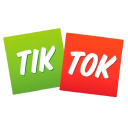Why I Left The VC World And Started Building For Creators
Hi, my name is Jen and I’m the co-founder and CEO at Passionfroot. Passionfroot is a platform that helps creators and media companies with a newsletter, podcast, Youtube, or social media accounts get and streamline sponsorships.
With Passionfroot, you can share your availability and pricing, accept sponsorship requests and collect creatives and payments in one place. On top, our Passionfroot Network connects relevant companies and creators for sponsorships.
We’re currently in a private beta and have grown over the past 3 months our GMV by more than 100%.

What's your backstory and how did you come up with the idea?
Before starting Passionfroot end of 2021, I was working as a VC investing in startups.
In 2020, I decided to start a newsletter called Tech for Good as a way to share my perspective and shine a light on everything that created a positive impact in our society or...

Download the report and join our email newsletter packed with business ideas and money-making opportunities, backed by real-life case studies.

Download the report and join our email newsletter packed with business ideas and money-making opportunities, backed by real-life case studies.

Download the report and join our email newsletter packed with business ideas and money-making opportunities, backed by real-life case studies.

Download the report and join our email newsletter packed with business ideas and money-making opportunities, backed by real-life case studies.

Download the report and join our email newsletter packed with business ideas and money-making opportunities, backed by real-life case studies.

Download the report and join our email newsletter packed with business ideas and money-making opportunities, backed by real-life case studies.

Download the report and join our email newsletter packed with business ideas and money-making opportunities, backed by real-life case studies.

Download the report and join our email newsletter packed with business ideas and money-making opportunities, backed by real-life case studies.


























